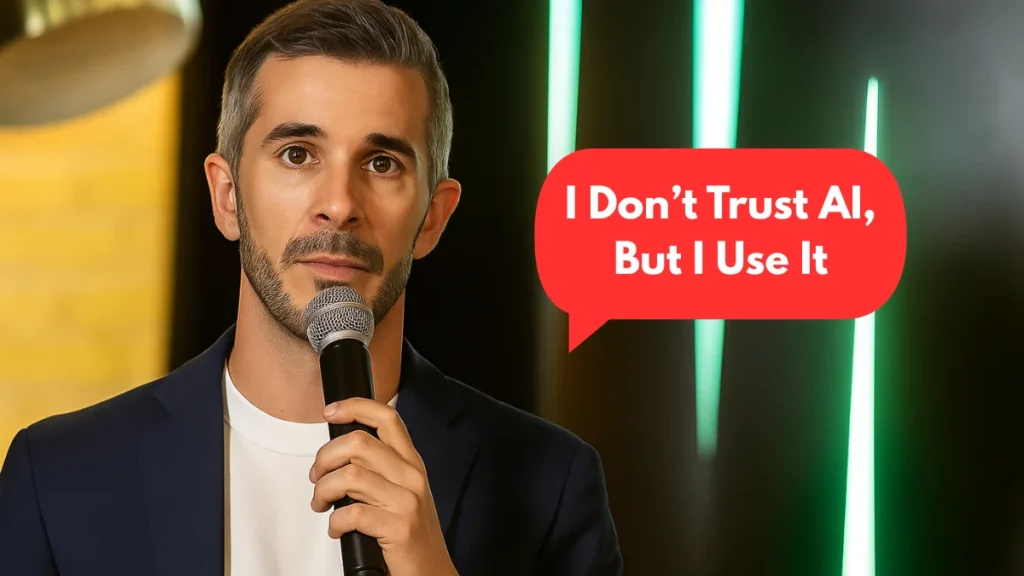Ken DiCross, the crypto founder behind Wire Network, leans on AI to run his business faster—but insists AI can’t be trusted blindly. Here’s why he uses it anyway, how it saves him hours every day, and why decentralised AI might be the only way forward.
Ken DiCross has a confession: He doesn’t trust artificial intelligence—but he can’t stop using it. The founder and CEO of Wire Network, a startup building the pipes that connect different blockchains, relies on AI for just about everything. From investor pitches to contract drafting, DiCross says AI is now his silent co-pilot, shaving hours off daily tasks that used to drain his time and his team’s energy.
Yet despite all the time saved, DiCross stays skeptical. He calls AI “atrocious” when it comes to math, and warns that anyone blindly trusting it—especially for coding—could find themselves in deep trouble. For him, AI is a tool, not a truth machine.
Key Takeaway
- AI saves DiCross hours daily: Tasks that took hours now take minutes.
- He doesn’t trust it completely: AI can still “hallucinate” and make mistakes.
- Decentralized AI is next: DiCross wants open-source AI that can’t be censored or abused.
- No more Google: He uses AI for search instead of traditional engines.
Building a Crypto Company—With AI as a Secret Weapon
When DiCross wants to know how his blockchain rivals stack up, he feeds their white papers into a large language model and fires off tough questions until he spots flaws. Most often, it’s the same flaw: centralization. That single weakness is exactly what his Wire Network aims to fix—creating decentralized solutions that avoid costly or risky workarounds.
And it’s not just deep research. DiCross says AI drafts his contracts, organizes his advisors’ tasks, even builds slick presentations so he doesn’t have to fiddle with slides. He’s convinced that AI has turned his senior developers into the equivalent of three employees each—no more need for armies of junior coders.
But Don’t Trust It Blindly
Despite all this, DiCross says AI is far from perfect. He recalls giving it a simple math problem—something a first grader could solve—and watching it fail spectacularly. For him, that’s the red flag. AI is powerful, but if you don’t understand what you’re asking it to do—or how to double-check its work—you’re setting yourself up for a security nightmare.
It’s the same reason he warns against “vibe coding,” the practice of letting AI generate software on autopilot. If you don’t know what the code really does, how can you trust that it’s secure? In DiCross’s world, AI can be your smartest intern—but it should never be your only expert.
AI in Everyday Life, Too
It’s not all blockchain and business. DiCross admits he’s basically ditched Google for AI chat tools. Traveling? He asks AI where to eat and when places close. He says the minutes saved here and there quickly add up to extra hours each week—time he’d rather spend building Wire Network’s future.
But that convenience comes with a catch. DiCross knows every prompt he types is training someone else’s AI—and building a profile on him in the process. He’s uneasy about that. Type in a medical question today, watch your insurance premium climb tomorrow? That’s the nightmare scenario he wants to avoid.
Decentralization or Bust
So what’s the answer? For DiCross, it’s decentralization—again. Just like blockchain aims to cut out middlemen and put power back in users’ hands, he believes AI needs the same revolution. Imagine an open-source AI that lives on a decentralized network: no giant corporations harvesting your data, no secret filters deciding what you’re allowed to know.
It’s an optimistic vision. DiCross sees it as inevitable. Just like Linux quietly became the backbone of the internet, decentralized AI might become the silent engine behind our next big tech wave—one that works for us, not the other way around.
Conclusion
For all his caution, DiCross isn’t about to give up his AI tools anytime soon. He might not trust them blindly—but he’s betting on them, and on a future where they can’t betray that trust.
